Some Spectator readers may recall the rather charming story of the small local newspaper in West Cork which took on the might of the Russian empire. In September 1898, following Czar Nicholas II’s success in securing a warm water base for the Russian navy in the south China sea, a thunderous editorial warned the expansionist ruler that: “The Skibbereen Eagle Is Watching You!”
Whether this suitably chastened the czar is, sadly, lost to history. Subsequent events suggest perhaps not.
But it seems that the spirit of The Skibbereen Eagle is alive and well in Irish political life. Taoiseach Simon Harris has decided to put on his tough-guy boots and go head to head with what we are meant to believe is the greatest threat to democracy of our era: social media.
Having spent the last few weeks fulminating against their evils and demanding meetings with Elon Musk and Mark Zuckerberg, it was announced over the weekend that he has written to all government departments setting out his plans to clamp down on social media companies over their handling of “online threats, bullying and increased spread of misinformation.”
Harris also contacted ministers stressing that social media can no longer “be a hiding place for bullies” or “people with sinister motives” who “threaten and incite violence.”
So why does Harris, who was such a fan of social media that he became known derisively as “Ireland’s first TikTok Taoiseach” suddenly have the social media companies in his sights? The answer is both personal and political.
Last Sunday, Patrick Grealish, a Galway man in his forties was arrested at his home for sending threatening messages to Harris’s personal Instagram account. It wasn’t the first threat issued to Harris, who also had to deal with a bomb threat to his family home in Co. Wicklow last month.
But while the Taoiseach’s personal reaction to such threats is entirely understandable on a basic human level, his plans to bring the full weight of the government down against the likes of Twitter and Meta is a sinister, authoritarian move straight out of the Keir Starmer playbook. In fact, the similarities between both men’s recently hardened attitude towards social media are striking.
According to both prime ministers, the recent disturbances witnessed in both countries were primarily the fault of social media platforms and Harris has been quick to engage in a nifty piece of deflection politics by focusing on angry or misleading Tweets rather than the issues which really concern the people.
When he replaced Leo Varadkar as Taoiseach back in April his main concerns were housing, the failing health system and numerous other bread and butter issues which concerned voters. Social media was not one of them. For most voters it still isn’t.
But because Dublin is the European hub for these social media companies — thanks, in part due to the extensive lobbying conducted by Harris’s own party — the Taoiseach now feels emboldened to threaten the likes of Musk with EU law.
However, as we saw with Musk’s vulgar but undeniably amusing riposte to French EU commissioner, Thierry Breton, following Bretton’s warning to him in advance of his interview with Donald Trump on X, it’s unlikely that anything Harris says or threatens will have much of an impact.
In theory, there are swingeing fines that can be levied. But these are unlikely to ever be enforced. Ultimately, the Irish government knows that it’s the billions in corporation tax the Big Tech companies who have established their European bases in Ireland pay that keeps the Irish economy afloat. Without them, Ireland would be in serious, serious trouble.
There are also other glaring problems with this latest broadside against the social media firms.
It’s all very well to talk about countering and banning so called “hate speech” online, but this is a government that admitted, when trying to introduce its ridiculous hate speech legislation, that they couldn’t actually define what “hate” actually meant, merely muttering that “we all know it when we see it.” (As it happens, the man who was arrested for threatening Harris, Patrick Grealish, was nicked under the pre-existing Section Four of the Public Order of 1984, proving that we don’t need new laws for his behavior.)
Of course, there are improvements that could be made to social media which, most people agree, has come to resemble a cesspool of madness and flagrant idiocy. Interestingly, Harris briefly touched on one potential improvement before quickly moving on. When he said that social media platforms should no longer be “a hiding place for bullies” one can reasonably infer that he was talking about those people who hide behind the cloak of anonymity to spout their bile. Anonymity, and the feeling of unaccountability it seems to afford so many of the socially inadequate is the first resort of the coward who is afraid to put his own name next to what he posts. Remove anonymity and whole tenor and quality of social media would immensely improve overnight. It is, in fact, the digital equivalent of wearing a balaclava on the street.
If Harris was to make that the central plank of this pointless and utterly quixotic tussle with Musk, then many people would have more sympathy for his position.
But as things stand, the average voter in Ireland, just like many of the average voters in the UK, are heartily sick of being patronized and insulted by both the media and the political classes.
What both Harris and Starmer have in common is an apparent, and unconscious, contempt for the ordinary voter in general and the working classes in particular.
Currently, politicians and journalists are the two most despised groups in Ireland and that is perfectly understandable.
It’s also why so many journalists, on both sides of the Irish sea, support increased restrictions on social media — it’s because they don’t like being abused by angry readers.
The stench of condescension and scorn from the elites towards those who express legitimate concerns about immigration, and the constant, witless refrain that anyone who expresses such concerns is automatically “far-right” (itself a meaningless term) has created an angry, disenfranchised population who feel abandoned and betrayed. And as we have seen across England and Belfast, that never ends well.
Musk insulted the EU commissioner with a vulgar meme. I doubt he will even bother doing that to slap down Simon Harris.
This article was originally published on The Spectator’s UK website.



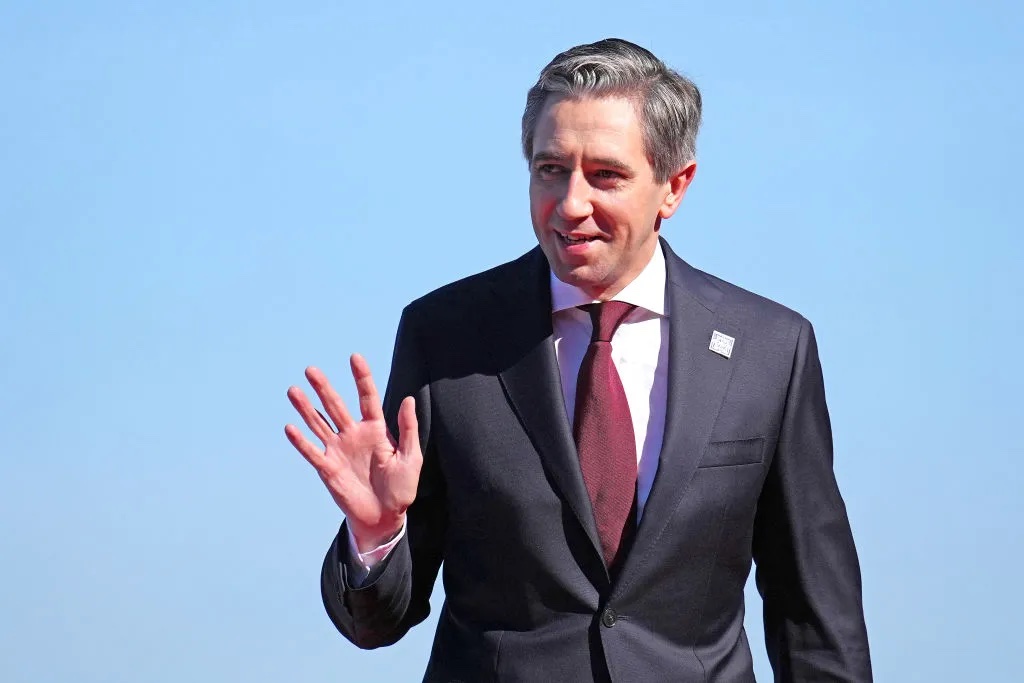






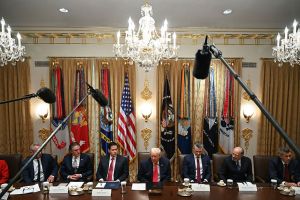












Leave a Reply